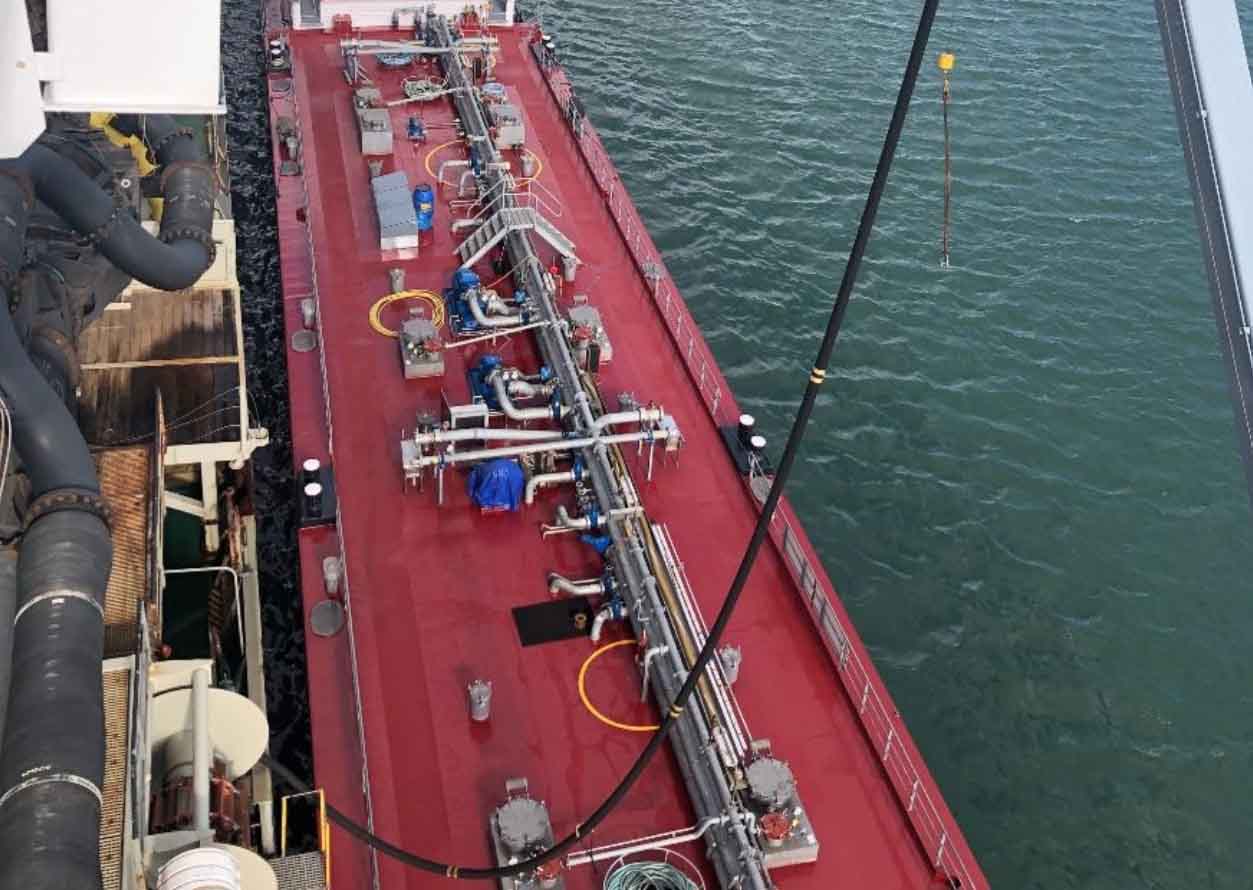
BunkerTrace completed its first trial using a synthetic DNA tracer to mark marine fuel in the supply chain.
Since FTL’s decision to join forces on BunkerTrace, events have moved quickly, and the joint venture with BLOC has engaged with a number of industry players keen to hear more about the product and trial the technology.
BunkerTrace’s first trial was conducted in partnership with Cooperative Bebeka, on October 3, 2019, in Vlissingen, Netherlands. The Boskalis-owned dredger, ‘Prins der Nederlanden’ was bunkered with 900 cubic meters (CBM) of ISO 8217:2010 compliant fuel supplied by Minerva.
The trial used a synthetic DNA tracer, accompanied by a highly sensitive molecular label, known as the ‘Flag’, used to identify if a product has been adulterated. Both markers were added to the fuel as it was loaded onto a Minerva bunker barge, via a dosing pump on the fuel line, and the marking event recorded in the BunkerTrace Mobile & Web Apps – providing real-time updates on activities in-field to participants.
Global verification body, Bureau Veritas, used the BunkerTrace mobile Detection System to test for the presence of the flag as the fuel was being bunkered. The in-field detection test took under 10 minutes and was able to demonstrate to the crew of the Prins der Nederlanden the presence of the flag at levels matching those taken upsteam, straight after addition. Samples of fuel were collected before and after the DNA tracer was added for further analysis in the lab.
The trial demonstrates the readiness of the BunkerTrace system to transform IMO 2020 fuel compliance and increase transparency and traceability in the marine fuel supply chain. By adding markers to fuel at each stage of the supply chain and recording each transaction in a blockchain based system, BunkerTrace creates an immutable audit trail that follows the fuel, and any changes made to it as well as sign offs by actors transacting the fuel.
For further information, visit BunkerTrace.
Article by: Forecast Technology
